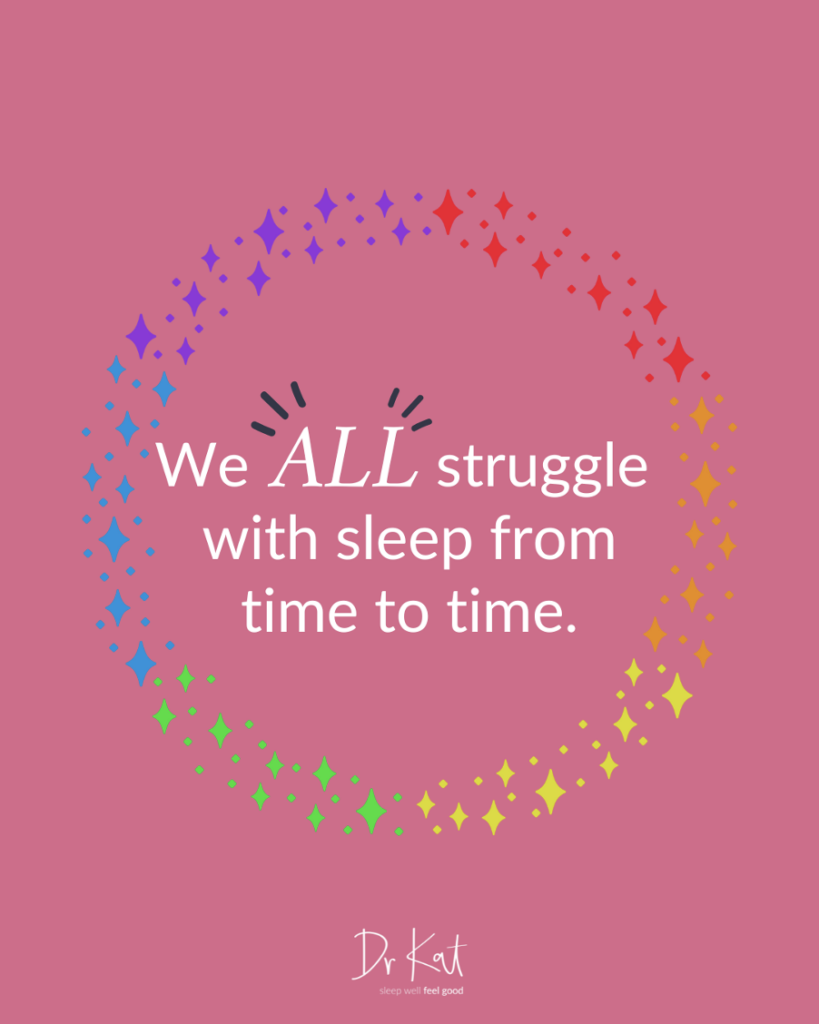Sleep Problems in Transgender People
Whatever the colour of your skin, or age, or sexual orientation, or your sex or gender – everyone needs a healthy sleep. Sleep is essential for our physical and mental health; it affects our desire to socialise and how we show up when around others. However, sleep is a bidirectional process such that interpersonal dynamics can affect it. Minority stress, which is socially based, can have a detrimental effect on sleep of transgender people.
If we don’t get the sleep we need, well, then we feel it – we become emotionally unbalanced, we struggle to concentrate and make sense of what’s going on around us, and we feel ‘bad’. While for some this might happen after one short night, for others it might take two or three poor nights to feel the impact of lack of sleep. But sooner or later, we all start to deteriorate mentally and physically if we don’t get enough sleep.
This “we” is an interesting one because most of the sleep research has looked at cisgender people, and here mostly in men. But while sleep data for gender minorities including transgender and non-binary people (and sexual minorities but I am not going to focus on this group today) is limited, we do know that transgender people are more likely to experience sleep problems than cisgender people.

What does the research show?
The prevalence of sleep problems in transgender people is significant.
A study by Auer et al.1 showed that 79.2% of trans women and 81.2% of trans men report poor quality sleep. While there was no difference between the genders, this rate is higher than for cisgender people.
A study by Dai & Hao2 assessed sleep duration in a diverse population. They found that an alarming 35.5% of transgender non-binary participants slept only up to 5 hours. This was also true for 13.1% of transgender female-to-male participants and 14.8% of transgender male-to-female participants. (In comparison, 12.1% and 12.3 of cisgender straight women and men, respectively, slept up to 5 hours. The study did not report on the sexual orientation of the transgender participants.)
Finally, a study by Hershner et al.3 looking at the sleep experience of college students found that transgender students had a higher prevalence of insomnia as well as sleep and mood disorders.

Poor sleep has a significant impact on the lives of transgender people
Insufficient sleep can lead to fatigue, difficulty concentrating, and mood problems. In some cases, sleep problems can even lead to suicidal thoughts (see the study by Hershner et al.). And given that short sleep is associated with an increase in risk for several health conditions, this puts transgender adults at an even higher risk of experiencing poor health. But it’s not only performance or health that are being affected, disturbed sleep is also associated with a reduced quality of life overall.
What are the reasons for the high prevalence of sleep problems?
There might be several factors affecting sleep health of transgender people, including:
- Psychosocial stressors: Transgender people often face stigma, discrimination, harassment, and violence. Experiences of non-affirmation of their gender identity and/ or internalised transphobia are other frequently experienced stressors. All of these stressors can lead to anxiety, depression, and other mental health problems, which in turn can disrupt sleep.
- Gender dysphoria: Psychological and/ or physical discomfort can cause anxiety and arousal thus impacting sleep.
- Hormonal changes: Transgender people who take sex hormones may experience changes in their sleep patterns such as sleep apnoea. Transgender women who take oestrogen may experience hot flashes, which can disrupt sleep. However, it is important to note that there is little research on this. What we do know is that it helps to alleviate gender dysphoria.
- Medical conditions: Transgender people are more likely to have certain medical conditions that can affect sleep such as pain.
- Other factors disproportionately affecting transgender adults: employment difficulties, unstable housing, financial instability. These worries can lead to anxiety and arousal thus causing sleep to be disturbed.
- Poor familial or social support: LGB literature reports that lack of family or social support has a negative impact on sleep. At least theoretically this might be the case for transgender people, too.
The above is a long list of factors potentially impacting sleep health. And these factors are not going to ‘act’ in isolation. Instead, psychological stressors are likely to interact with biological factors (e.g. impact of sex hormones on sleep and the body clock). Poor sleep can exacerbate the aforementioned stressors, leading to a vicious cycle of discomfort and poor sleep. But by taking steps to modify any of these key players you can make a positive impact on the others, thereby breaking the cycle.
Protective factors for sleep in transgender people
For me, it all starts with healthy sleep habits. These are not rules set in stone, but behaviours you choose to implement to support your sleep. These are the same for anyone who wants to sleep well.
- Establish regular sleep times: Go to bed and wake up at the same time each day, even on weekends.
- Wind-down and me time: This could include taking a warm bath, reading a book, watching some TV, or listening to calming music.
- Avoid caffeine and alcohol before bed: These substances can interfere with sleep. Cut coffee out by 3pm and alcohol at least 2 hours before sleep.
- Make your bedroom dark, quiet, cool, and welcoming: These conditions are ideal for sleep.
- Ask for expert help: If you have tried the above tips and you are still having sleep problems, see a sleep specialist or your GP. There may be an underlying medical condition that is causing your sleep problems.
- Look after your mental health: Sometimes you might get caught-up in thinking loops. By learning how to disentangle from these thoughts and feelings you can become unstuck again, and take steps to improve your mood, wellbeing – and sleep.
- And above all – self-belief and self-care: Allow yourself time and space for your gender identity journey. Because when you feel you settled in your body, your body and mind can relax. And that is the best avenue towards healthy sleep.
Reducing minority stress – a shared responsibility
Hostility, prejudice and discrimination result in minority stress which can have a severe impact on health including sleep. From the three stressors I just mentioned you can easily infer that the social environment (e.g. culture and society) is an influential factor here. And so I want to return to the “we” from the beginning. We all play a role in how accepted and ‘normal’ transgender people feel. Straight or homosexual, cis- or transgender or non-binary, whatever the skin colour or height or weight – our attitude and interactions with the other human being affect how they feel. It’s a shared responsibility to make our culture and society and inclusive one.
Here are some ideas which go beyond sleep and which we all can engage in to reduce transgender discrimination and inequality. These actions are interwoven to form a supportive network:
- Improve your and the mental health of others: We are all human beings who thrive when we feel happy and connected.
- Reduce experience of minority stress through:
- Think about your own gender experience and what it might be like if someone told you your gender identity is wrong.
- Reach out to the community: Be curious and educate yourself about the lived experience of transgender people.
- Gender-affirming policies: Help to implement these at your work or institution. They increase oppression awareness and promote equality.
- Psycho-social support for family and friends: Aims to improve understanding and support by lessening prejudice and rejection.
Additional resources
Here are some additional resources for transgender people who are experiencing psychological distress:
- Supportline: Offers confidential emotional support to children, young adults and adults.
- GLAAD: An organisation that works to promote acceptance of LGBTQ people.
- GIRES: Information and support for families of adult transgender, non-binary and non-gender people.
If you are struggling with sleep and find yourself entangled with your thoughts, send me an email or book an initial call with me to find out how I can help.
Warmly,
Dr Kat

References:
1Auer et al., 2017: High impact of sleeping problems on quality of life in transgender individuals: A cross-sectional multicenter study. PLoS ONE, 12(2): e0171640
2Dai & Hao, 2017: Sleep Deprivation and Chronic Health Conditions Among Sexual Minority Adults. Behavioral Sleep Medicine, 254-268.
3Hershner et al., 2021: Associations Between Transgender Identity, Sleep, Mental Health and Suicidality Among a North American Cohort of College Students. Nature and Science of Sleep 13, 383-398.
